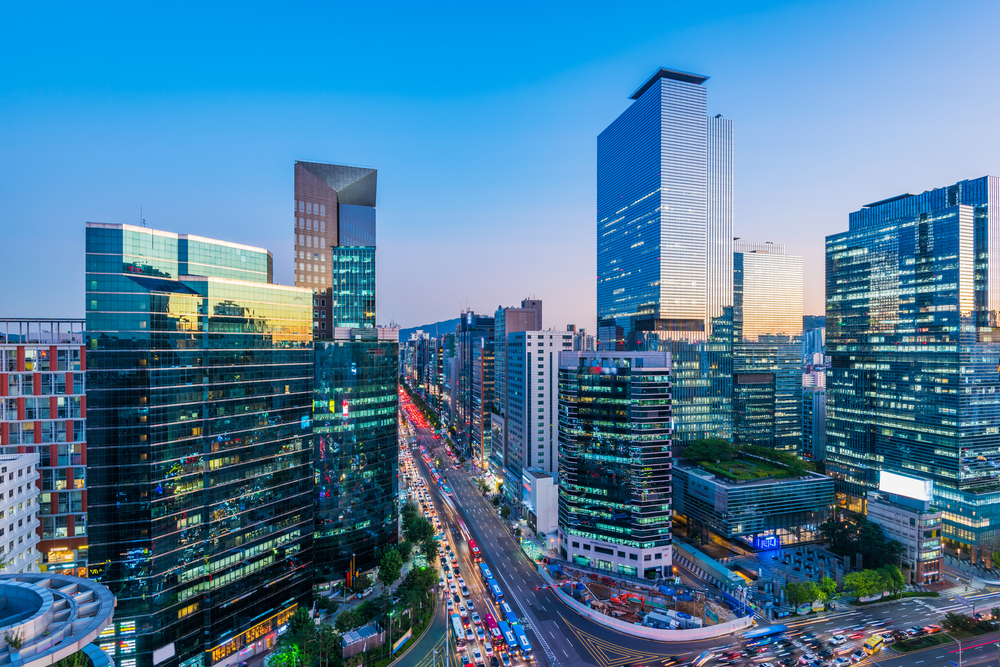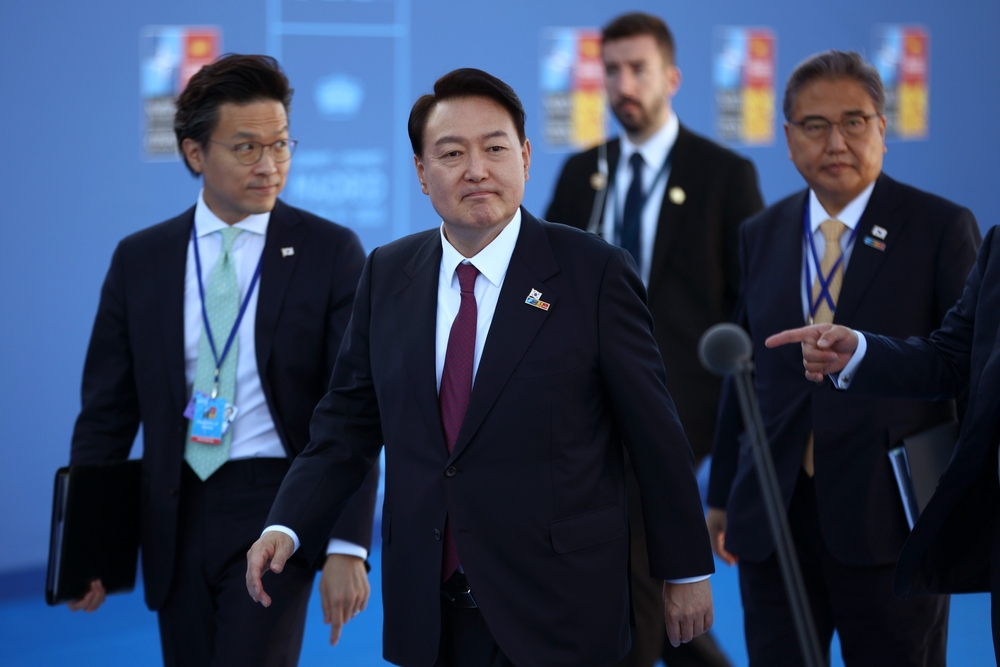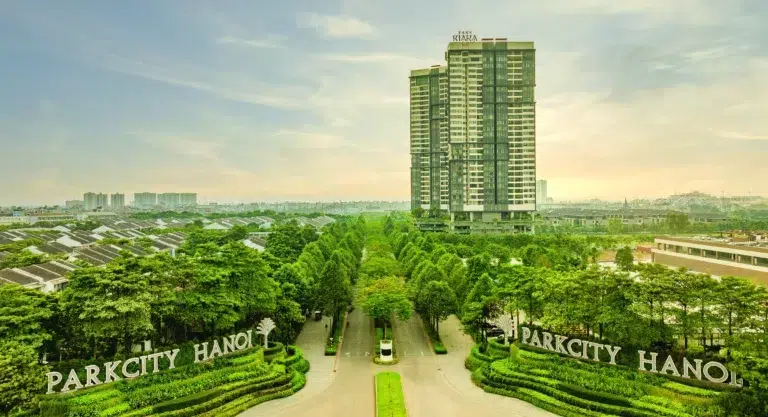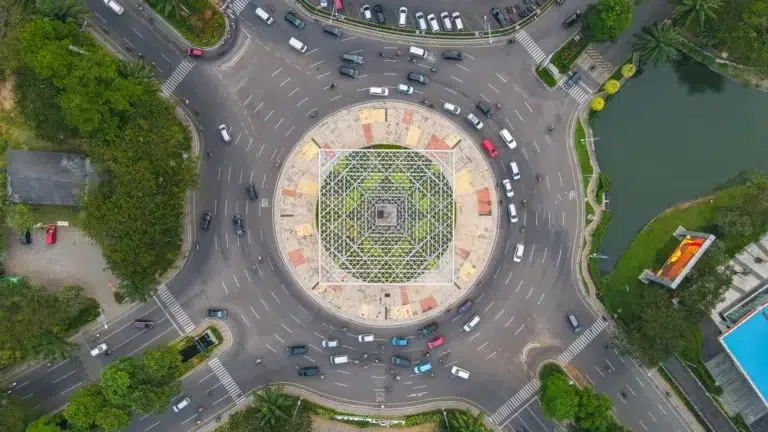South Korean housing market heats up with interest rate freeze
House prices in South Korea have plummeted from an overheated high, but rumours of an interest rate freeze are lighting a fire under the market

In his five years as South Korean president, Moon Jae-in introduced 25 separate measures designed to curb runaway house prices. Yet the average price of a condominium unit in Seoul roughly doubled to USD1 million by the time Moon left office in May 2022 as South Korea ranked among the least affordable housing markets in the world.
“I have apologized for the real estate issue several times,” he said near the end of his term in office. It’s no wonder South Koreans considered housing the number-one issue at last year’s polls.
While Moon failed to rein in prices, his successor Yoon Suk-yeol faces the opposite problem. A housing market which seemed unstoppable just a year ago has since recorded a steep drop in prices. The slump has left the new government struggling to deliver a soft landing, and homeowners stuck between soaring mortgage repayments and few opportunities to sell.
In response to runaway inflation following the Ukraine conflict, the central bank raised rates seven times to January, resulting in mortgage rates which have nearly doubled in just two years. After the first rates increase in May last year, and the first-ever 50 basispoint hike the following month, a drop in house prices began to snowball, catching many in the market by surprise.
“While we predicted a rise in the base rate would stabilise rising inflation, we did not expect the extent of the increases witnessed during 2022, with mortgage rates doubling since end-2021,” says Joann Hong, director of research and consultancy at Savills in Seoul.
“In November 2022, nearly one-third of house sales were completed without an agent as desperate sellers have sought to cut out commission to make sales more attractive and returns as high as possible”
Seoul witnessed a 0.24 percent fall in house prices in August last year, and by December the rate had reached nearly two percent. Shifting buyer sentiment has played into the decline: Rumours in Seoul during the autumn dictated prices were set to collapse by 40 percent across the market, as units in some buildings in the South Korean capital saw prices slump by one-third. By November, 65 percent of South Koreans predicted falling prices in the first half of 2023, versus just 14 percent a year earlier, according to a biannual survey by Seoul-based property firm Real Estate 114.
This sharp market reversal has in turn led to a host of new market peculiarities. South Korean newspapers have reported extensively on new homeowners who have suddenly found themselves unable to pay mortgage rates which soared on homes whose values have plummeted. Negative equity, unthinkable a year earlier, has become normalised overnight. Many South Koreans have waited years to get on the property ladder only to be forced to sell within months.
In November 2022, nearly one-third of house sales were completed without an agent, according to the Korea Economic Daily, double the rate of just a month earlier as desperate sellers sought to cut out commission to make sales more attractive and returns as high as possible.
Related: From zero to hero: Luxury real estate’s meteoric rise in Thailand
In response, the Yoon administration began to dial back the measures put in place by the previous government. A package called the “1.3 measures”, introduced on January 3, removed 11 Seoul districts from the speculative area list where properties incur higher taxes and stricter mortgage rules.
Analysts agree that interest rates rather than housing policy changes by the Yoon administration are likely to remain the key driver of market dynamics. Few have predicted a near-term recovery. In November, Fitch Ratings forecast the South Korean housing market downturn “could persist over several years” and maintained this negative outlook when contacted in the first quarter.
Signs the market may be bottoming out have been detected, however. In January, house prices continued to fall for an eighth consecutive month, but the pace slowed from nearly two to 1.49 percent, according to Korea Real Estate Board data, the first decrease in the depreciation rate since price began falling last year.

“It was partly due to expectations for a market recovery after banks’ lowering of commercial interest rates and government announcement policy measures,” says the Korea Real Estate Board in a statement announcing the new figures.
A month earlier, average commercial mortgage rates were recorded at 4.68 percent, down 0.11 percent, according to the central bank, the first monthly decline since the rate hikes cycle began in May last year, and despite a continuation of base rate increases by the central bank.
South Korean banks have come under growing pressure to rein in profiting from interest spreads amid widespread criticism from customers and the government following record financial results in the wake of the pandemic.
Since January, analysts have increasingly bet on an end to central bank rate hikes, the key driver of commercial mortgage rates, in a further sign lending conditions may improve over the remainder of the year. Until this happens, prospects for a housing market recovery remain dim.
“I suspect we may be near the end of the rate hike cycle,” says Robert Wilkinson, managing director of Colliers International Korea. “There is an outside chance the Bank of Korea may start to cut interest rates at the end of this year, but it is more likely to be next year.”
The original version of this article appeared in PropertyGuru Property Report Magazine Issue No. 177 on issuu and Magzter. Write to our editors at [email protected].
Recommended
Hanoi’s Park Kiara redefines urban living with green, people-centric design
Park Kiara in Hanoi is a repudiation of low-density, car-dependent suburban sprawl
ARES White Paper Volume 3: The era of adaptive reinvention
Pioneering sustainable and innovative practices in urban development
ARES White Paper Volume 2: Unravelling the power of data revolution in real estate
Insights on proptech, smart cities, and sustainable development
ARES Digital White Paper Volume 1: The fundamentals of responsible building
Green and climate heroes join forces to discuss how Asia Pacific can weather the current environmental crises and the looming effects of climate change






